
 Flash News
Flash News
4-year-old girl falls from balcony in Lezha, urgently taken to Trauma
Another accident with a single-track vehicle in Tirana, a car hits a 17-year-old
While bathing in the sea, a vacationer in Durrës dies
DP: Citizens await rent bonus and apartments, Tirana Municipality holds tenders for furniture
Morning Post/ In 2 lines: What mattered yesterday in Albania
Draft Law "On Science and Scientific Research"/ VOA: Contradicts the Constitution and violates academic freedom
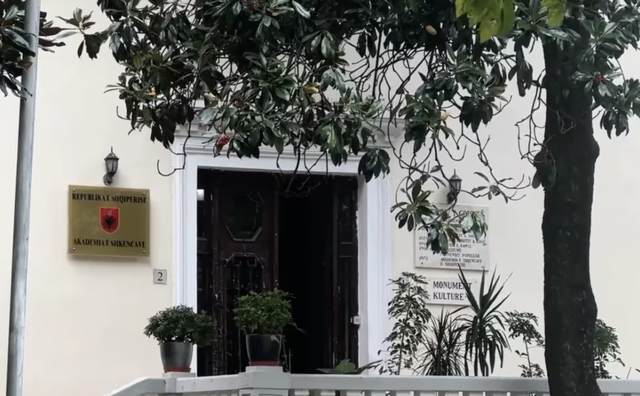
In Albania, the draft law "On Science and Scientific Research" submitted for public consultation by the government is provoking discussions among researchers and official authorities, at a time when funding for it is low, and scientific products do not penetrate into different areas of life in Albania. place. The Voice of America managed to learn the details of the 24-page opposition of the rectors' conference on this draft law, where it is underlined, among other things, that it contradicts the constitution, the Law on Higher Education and violates academic freedom. But on the contrary, according to official authorities, the draft law opens scientific research beyond the university academic world and gives due importance to it, with the establishment of a national council chaired by the Prime Minister.
In Albania, the government intends to introduce scientific research into a new legal framework and expand the entities that can carry out scientific research through a draft law "On science and scientific research". Universities have an important weight in this direction, so this draft has stimulated discussions in academic circles.
One of the most debatable points of the draft law is related to the creation of the National Science Council with 14 members, five ministers, under the direction of the Prime Minister. The aim of this council is thought to be the orientation and approval of policies and priority areas of science and scientific research, but researcher Arjan Gjonça points out that this council has a governmental majority in its composition.
"This is rather a government board, because the majority of this board is owned by the government directly with its members, ministers and with any representative of any agency, institution dependent on the government. So the government is advising the government and the government is making policies with the people of the government" - says Arjan Gjonça, professor, for Voice of America.
Even researcher Nevila Xhindi sees an increase in political influence over science in this definition of the bill.
"I do not justify that the prime minister is at the head of the science council with all the importance he wanted to give to the fact that he makes it important by putting himself. So not naming names makes it important. Please drop this kind of importance. To leave the importance of this matter to the scientific community" - Nevila Xhindi, a researcher, said to the Voice of America.
The official authorities say that the National Council for Science has an advisory role and that the government through it shows the importance it is devoting to scientific research, with the aim of turning it into the service of different areas of life in the country.
"It's a matter of perspective really. I believe that aligning science with decision-making is mutually beneficial. Science has a scientific product that can serve decision-making as evidence to make better public policies. On the other hand, bringing science closer to decision-making can solve very important problems that currently exist in this field" - argues Mirela Muça, General Director of AKKSI.
Even the Conference of Rectors is expected to express its official position on the draft law "On science and scientific research" on Monday in the parliamentary education committee. The Voice of America managed to learn that in the 24-page opinion there is a request for the review of this draft law, as it is said to be in conflict with the constitution, with the EU directive itself to which it refers, and that there is a clash of legal norms with the existing ones. The Conference of Rectors points out that the draft law violates the autonomy of higher education institutions and academic freedom, provided for in the constitution and in the Law on Higher Education. But according to the head of the National Agency for Scientific Research and Innovation, the draft law in no case infringes academic freedom, but makes scientific research inclusive.
"It does not attack the autonomy of universities to do scientific research, on the contrary, the spirit is the freedom to do scientific research, but not only in universities. We are realizing that universities are certainly important actors in scientific research and currently most scientific research actually takes place in university classrooms and laboratories. The Law of Higher Education really encourages, regulates and promotes scientific research, but within the territory of the University. But since we have other very important actors, are we going to leave them out? Of course not. This law does this, so it makes the process and activity of scientific research comprehensive" - explains Mrs. Muça, general director of Akkshi.
According to the independent researcher, former member of the working group for the drafting of the reform in higher education, Arjan Gjonça, if the government says that it aims for an all-inclusive law, the existing law does not prohibit anyone, as he says, from applying to the scientific research projects of the Universities .
"There is a discrepancy in vision. If in the law of Higher Education it was thought that scientific research work is a very important part of the universities in Albania in the draft law submitted for discussion, "On science and scientific research" there is a movement and a disconnection, and attention is mainly placed on the institutions outside universities. This does not mean that institutions outside universities should not do scientific work, but this has to do with where the funding goes" - continued Mr. Gjonça.
Scientific research in Albania has a budget of 5.5 million euros, which is only 0.08% of GDP. Officials say they aim to increase it to 1% in 2030, while the average budget of EU countries for scientific research is 3%. Increasing efforts for scientific research is one of the EU's requirements for integration.
But one of the main concerns today is related to the capacities of scientific research in order to absorb EU funds, where one of the main programs, that of Horizon Europe, has a budget of 100 billion euros for this purpose. That's why researchers put emphasis on increasing scientific research capacities in the country.
"When we talk about scientific research, we must have the capacity to absorb these funds. We have to think now. It will be too late in a year or two. Albania will have full access to the EU Cohesion fund in two years. And to get there, among other things, you need to have a group and a work team that will write these projects. They should be strongly translated into the increase of capacities in universities for scientific research" - says Mrs. Genie.
The draft law on science comes at a time when discussions to increase capacities and funding for scientific research have intensified. During the following days, this legal initiative is expected to arouse new debates in the parliamentary tables and academic circles./ VOA
Latest news


6 record tone
2025-06-29 21:30:46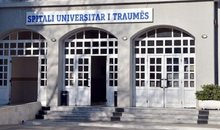
4-year-old girl falls from balcony in Lezha, urgently taken to Trauma
2025-06-29 21:09:58


Assets worth 12 million euros seized from cocaine trafficking organization
2025-06-29 19:39:43
Fire in Durrës, Blushi: The state exists only on paper
2025-06-29 19:17:48

Fire endangers homes in Vlora, helicopter intervention begins
2025-06-29 18:27:51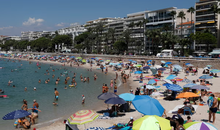
France implements smoking ban on beaches and parks
2025-06-29 18:02:08
England U-21 beat Germany to become European champions
2025-06-29 17:42:49
Trump criticizes Israeli prosecutors over Netanyahu's corruption trial
2025-06-29 17:08:10
Street market in Durrës engulfed in flames
2025-06-29 16:52:57
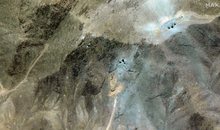
UN nuclear chief: Iran could resume uranium enrichment within months
2025-06-29 16:03:24
Albanian man dies after falling from cliff while climbing mountain in Italy
2025-06-29 15:52:01

Another accident with a single-track vehicle in Tirana, a car hits a 17-year-old
2025-06-29 15:07:15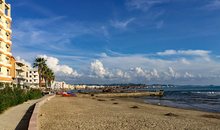
While bathing in the sea, a vacationer in Durrës dies
2025-06-29 14:54:01
Sentenced to life imprisonment, cell phone found in Laert Haxhiu's cell
2025-06-29 14:26:40
77 people detained in protest, Vučić warns of new arrests
2025-06-29 14:07:46
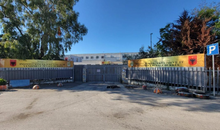
From a hospital for children to a prison for politicians
2025-06-29 13:34:02
77-year-old man found dead in Pogradec
2025-06-29 13:13:10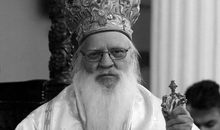
The Metropolitan of Gjirokastra passes away
2025-06-29 12:52:27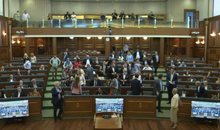
The 39th session to elect the speaker of Kosovo's parliament also fails
2025-06-29 12:31:28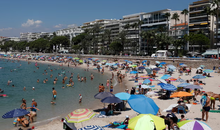
France bans smoking on beaches and parks
2025-06-29 12:16:23
Alarm from the Philippines: Albania, a growing destination for labor trafficking
2025-06-29 11:50:34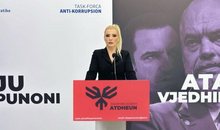

After 2-year ban, Paul Pogba signs with Monaco
2025-06-29 11:15:15
Can Albania produce all the food it needs?
2025-06-29 11:02:12
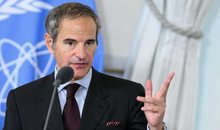
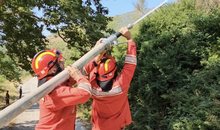

New study says: ChatGPT can damage your brain
2025-06-29 09:25:26
Violence and clashes at student protest in Belgrade
2025-06-29 09:12:22
Foreign exchange, the rate at which foreign currencies are sold and bought
2025-06-29 08:59:46

Horoscope, what do the stars have in store for you today?
2025-06-29 08:33:06
Hot weather, temperatures reach 39 degrees Celsius
2025-06-29 08:16:12
Morning Post/ In 2 lines: What mattered yesterday in Albania
2025-06-29 08:01:38

"Article Basha, wrong"/ Bardhi against Berisha's removal with statute
2025-06-28 21:41:41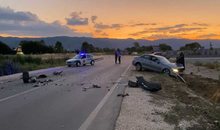
Two cars collide in Pogradec, 3 people injured
2025-06-28 21:29:25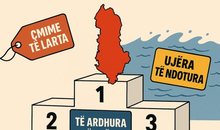
The first from the end... Albania's unwanted "victories"
2025-06-28 21:10:43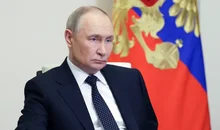
War with Ukraine, Putin: I am convinced that Russia will win!
2025-06-28 20:54:16
ChatGPT "destroys" the human brain! New study publishes disturbing results
2025-06-28 20:31:34
Triple accident in Lapraka, two people injured
2025-06-28 20:13:39

EMRI/ Albanian cocaine smuggler risks life in prison in the US
2025-06-28 19:34:14

Rallies against Vučić continue, Belgrade prepares for major student protest
2025-06-28 18:23:29

A young man from Kosovo passes away after coming to Lezha on vacation
2025-06-28 17:42:10
Flames engulf the mountain in Maliq, flames near the former military tank depot
2025-06-28 17:18:08


Europe on heatwave alert, temperatures reach 42 degrees!
2025-06-28 16:19:55
Palm tree falls on "Epidamn" Boulevard in Durrës, blocking traffic
2025-06-28 15:58:08
WHO publishes final report on Covid-19: We cannot find its origin!
2025-06-28 15:42:16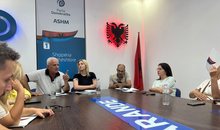

A house in Shëngjin is destroyed by flames
2025-06-28 15:07:57

Police fire gun at vehicle in which young man was traveling
2025-06-28 14:44:02
4 caravans collapse in Tirana
2025-06-28 14:28:19
"Skënder's son and Gjergj's daughter, an Albania without competition"
2025-06-28 14:10:24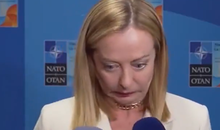

The Special Prosecution Office seizes assets worth around 12 million euros
2025-06-28 13:23:25


Fire in Lapraka, flames engulf the area in front of the 'Aleks Buda' school
2025-06-28 12:27:29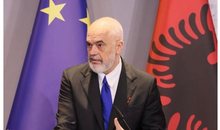
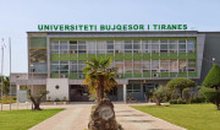
Abuses with UBT tenders, SPAK takes 28 lecturers and businessmen as defendants
2025-06-28 11:50:24


A year after his father's death, the famous former footballer also passes away
2025-06-28 10:55:45
Father and son arrested for cultivating cannabis in Tepelena
2025-06-28 10:36:23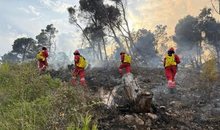

Veliaj's paid PR as an instrument for manipulating public opinion
2025-06-28 10:02:46




Horoscope, discover the star forecast for your sign
2025-06-28 08:39:44
Weather forecast, how temperatures will change during the day
2025-06-28 08:22:06
Morning Post/ In 2 lines: What mattered yesterday in Albania
2025-06-28 07:54:37
Journalist: 1/4 of Albanian families live only on emigration money
2025-06-27 22:53:49
Residents of Astir denounce the mixing of drinking water with sewage
2025-06-27 22:29:46
The counterfeiter of the nation
2025-06-27 21:58:15




Trump speaks again about Kosovo and Serbia: they are about to clash in a big war
2025-06-27 21:10:27
Tragedy in France/ Plane crashes, 3 people die
2025-06-27 20:54:17
BIRN: Here's who covered Rama's private jet trip to The Hague airport
2025-06-27 20:40:58

Adorable or just plain weird? How Labubu dolls took over the world
2025-06-27 20:07:29
Analysis/ How did the US use penetrating bombs on Iran's nuclear facilities?
2025-06-27 20:01:37
